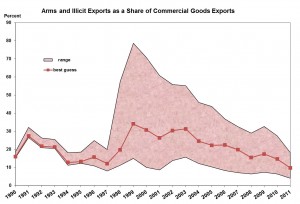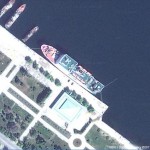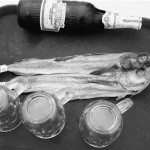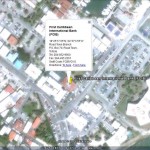The report is dated February 23, 2015 and you can download the PDF here.
Andrea Berger commented on the report in this article at 38 North.
Media coverage of the report has focused on two aspects: 1. North Korea has changed the name of the ships in its commercial fleet to avoid sanctions enforcement. 2. North Korean spies managed to infiltrate the UN World Food Program and UNESCO.
Here is Reuters on the report:
“Exclusive: Sanctioned North Korea shipping firm still active, renamed ships – U.N. panel”
A U.N.-blacklisted North Korean shipping company has renamed most of its vessels in a bid to disguise their origin and continues its illicit shipments in violation of United Nations sanctions, according to a U.N. experts report seen by Reuters on Wednesday.
The U.N. Security Council’s Panel of Experts on North Korea, which monitors implementation of sanctions on Pyongyang, also said in the 76-page report that North Korea “continued to defy Security Council resolutions by persisting with its nuclear and ballistic missile programs.”
North Korea is under United Nations sanctions because of its nuclear tests and missile launches. In addition to arms, Pyongyang is banned from importing and exporting nuclear and missile technology and is not allowed to import luxury goods.
The experts’ report also said the sanctions have not curbed food or humanitarian aid to the impoverished hermit state, but it recommended that the U.N. spell out which items for such use are exempt.
The council last July blacklisted shipping company Ocean Maritime Management Company (OMM) for arranging an illegal shipment on the Chong Chon Gang ship, which was seized in Panama and found to be carrying arms, including two MiG-21 jet fighters, hidden under thousands of tonnes of Cuban sugar.
“Following the designation of OMM … (North) Korea acted in order to evade sanctions by changing the registration and ownership of vessels controlled by the company,” the report said.
“Thus far, 13 of the 14 vessels controlled by OMM have been renamed, their ownership transferred to other single ship owner companies (with names derived from the ship’s new names) and vessel management transferred to two main companies,” it added.
The report said OMM worked with individuals and entities based in countries such as Brazil, China, Egypt, Greece, Japan, Malaysia, Peru, Russia, Singapore and Thailand.
The panel recommended that the council’s sanctions committee blacklist 34 OMM entities (shell companies), including Chongchongang Shipping Co, Amnokgang Shipping and Biryugang Shipping. It also recommended sanctioning OMM Vice President Choe Chol Ho, Chongchongang Shipping President Kim Ryong Chol and three Chongchongang directors.
It said that North Korean diplomats, officials and trade representatives played key roles in illegal weapons and missile deals. They often were involved in illegal funds transfers.
The panel also said North Korean intelligence agents aided the movement of money believed to be linked to weapons transactions.
The report said agents of the Reconnaissance General Bureau (RGB), North Korea’s main intelligence agency, had worked at international organizations and were using those positions to support activities aimed at skirting sanctions.
It cited as an example the French government’s decision to freeze assets of Kim Yong Nam, an RGB officer working under cover as an employee at UNESCO, the U.N. cultural and scientific organization in Paris, and his son and daughter. His son Kim Su Gwang, also an RGB officer, was working at the U.N. World Food Program.
The panel said Kim Young Nam’s daughter, Kim Su Gyong of the Korean United Development Bank, “was engaged in financial activities under false pretences in order to conceal the involvement of her country.”
The panel also opened its first inquiry into the use of drones. Between October 2013 and March 2014, South Korea found wreckage of three drones it determined were from North Korea and had been spying on military facilities.
The Security Council has banned the supply, sale or transfer of complete armed or surveillance drones with a range of at least 300 km (186 miles). The panel said it was unclear if the recovered drones were acquired abroad or made in North Korea.
EXEMPTIONS
The experts found “no incidents where bans imposed by the (U.N.) resolutions directly resulted in shortages of foodstuffs or other humanitarian aid.”
“National legislative or procedural steps taken by (U.N.) member states or private sector industry have been reported as prohibiting or delaying the passage of certain goods to (North Korea),” the report said. “It is sometimes difficult to distinguish these measures from United Nations sanctions.”
The U.N. Security Council says the sanctions are not intended to harm North Korean civilians, but there is no exemption mechanism. For that reason, the experts recommended that exemptions be proposed “provided that such items are confirmed to be solely for food, agricultural, medical or other humanitarian purposes.”
North Korea has said the sanctions are illegal and aimed at toppling the country’s reclusive government. A U.N. inquiry last year reported systematic torture, starvation and killings by the country’s leaders that are comparable to Nazi-era atrocities.
In the Associated Press:
“UN: North Korean company renames ships to evade sanctions”
A North Korean shipping company that famously tried to hide fighter jets under a cargo of sugar later sought to evade U.N. sanctions by renaming most of its vessels, a new report says.
The effort by Pyongyang-headquartered Ocean Maritime Management Company, Ltd. is detailed in the report by a panel of experts that monitors sanctions on North Korea. The report, obtained by The Associated Press, makes clear the challenge of keeping banned arms and luxury goods from a nuclear-armed country with a history of using front companies to duck detection.
The U.N. Security Council holds consultations Thursday on the report, which also says North Korea’s government persists with its nuclear and missile programs in defiance of council resolutions.
North Korea’s mission to the U.N. did not respond to a request for comment.
The council last year imposed sanctions on OMM after Panama in 2013 seized a ship it operated that carried undeclared military equipment from Cuba. Panamanian authorities found two Cuban fighter jets, missiles and live munitions beneath the Chong Chon Gang’s cargo of sugar.
The council’s sanctions committee said that violated a U.N. arms embargo imposed in response to North Korea’s nuclear and missile programs. At the time, U.S. Ambassador Samantha Power said that imposing a global asset freeze on OMM meant that the company would no longer be able to operate internationally.
But the new report says that in the months after the sanctions were imposed, 13 of the 14 ships controlled by OMM changed their owners and managers, “effectively erasing” the company from a database kept by the International Maritime Organization. Twelve of the ships “reportedly stayed, visited or were sighted near ports in foreign countries,” and none were frozen by member states as the panel of experts recommends.
The new report explores the shipping company’s global reach, using people and entities operating in at least 10 countries: Brazil, China, Egypt, Greece, Japan, Malaysia, Peru, Russia, Singapore and Thailand. The report recommends updating the sanctions list with 34 OMM entities and says all 14 vessels should be subject to sanctions.
No interdictions of the kind that Panama made in 2013 were reported in the period between Feb. 8 of last year and Feb. 5 of this year. But the new report warns that the panel of experts sees no evidence that North Korea “intends to cease prohibited activities.”
The report also says diplomats, officials and trade representatives of North Korea continue to “play key roles in facilitating the trade of prohibited items, including arms and related materiel and ballistic missile-related items.”
The panel of experts warns that some U.N. member states still are not implementing the council resolutions that are meant to keep North Korea from further violations.
North Korea also faces an embargo on luxury goods, but the report found that it managed to bring in luxury goods from multiple countries, including with the help of its diplomatic missions. Some items were for the country’s Masik Pass luxury ski report, which opened in 2013. China told the panel of experts that the ski lift equipment it provided was acceptable because “skiing is a popular sport for people” and that ski items are not specifically prohibited.
In another case, a yacht seen alongside leader Kim Jong Un in 2013 was sourced by the panel of experts to a British manufacturer, Princess Yachts International, which the panel said did not reply to a request for more information.
The panel also said it has opened its first investigation into a case involving North Korean drones after the wreckage of three drones was found in South Korea in late 2013 and 2014. The report says the drones had been used for reconnaissance over South Korean military facilities and that the drones contained components “sourced from at least six foreign countries.”
North Korea protests that the U.N. sanctions are harmful to its citizens, but the report says it has found no incidents where they “directly resulted in shortages of … humanitarian aid.” It does recommend that the sanctions committee propose exemptions for purely food, medical or other humanitarian needs.




